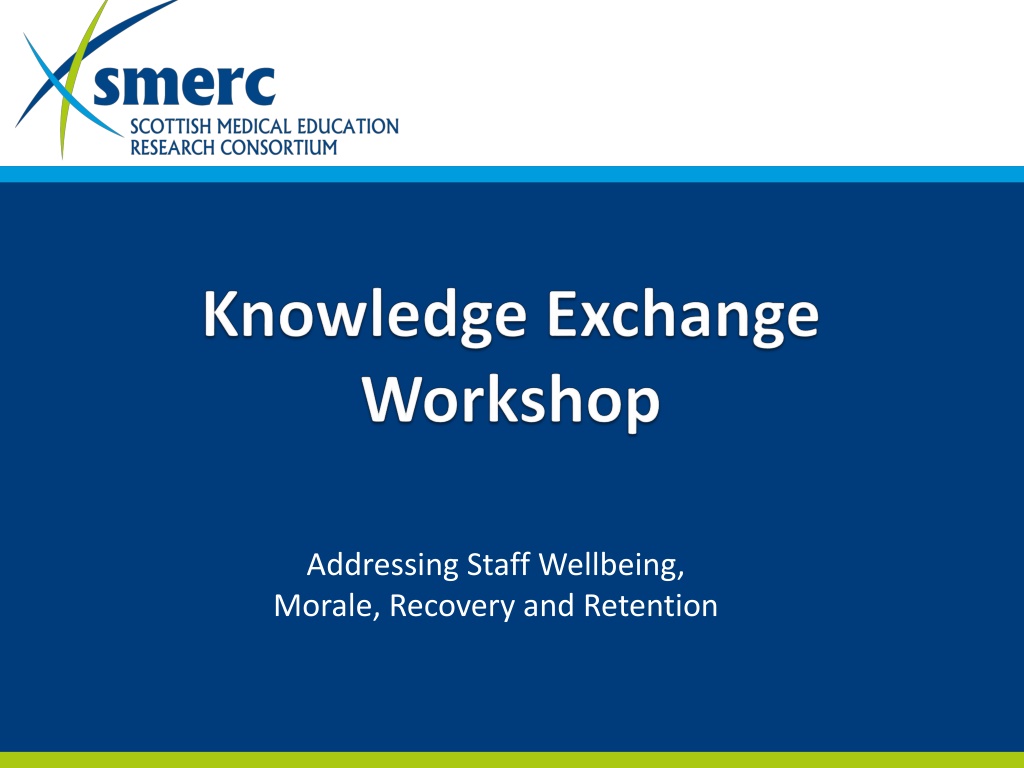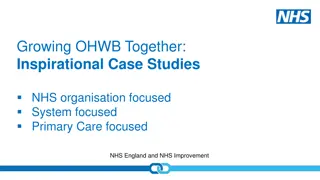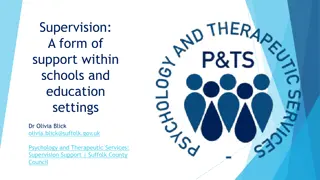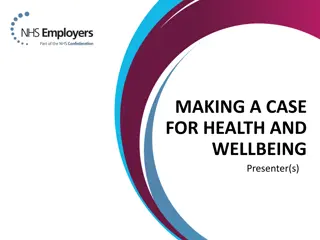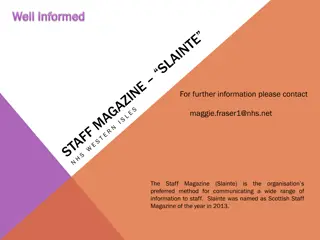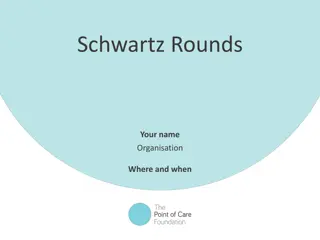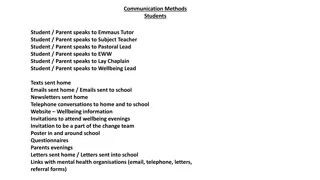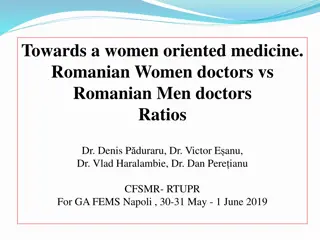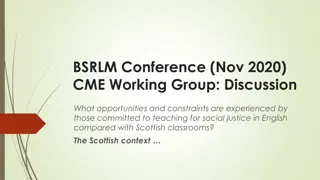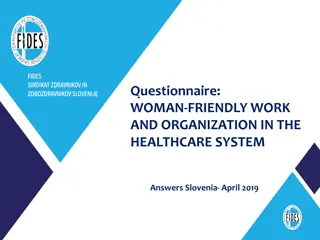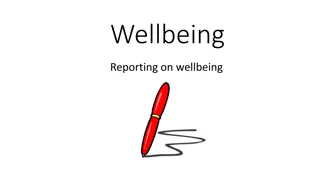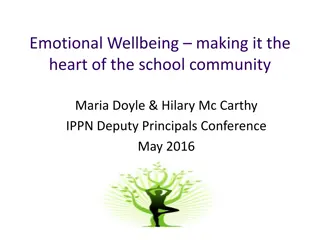Understanding Healthcare Staff Wellbeing: Scottish Doctors' Study
Exploring the Scottish Doctors' Wellbeing Study by various academic institutions and NHS Education Scotland to address staff wellbeing, recovery, and retention. The research aims to strengthen understanding to ensure healthcare professionals feel heard, valued, and supported. Insights reveal the pandemic's impact on healthcare staff's mental wellbeing and the need for genuine support beyond current trends.
Download Presentation

Please find below an Image/Link to download the presentation.
The content on the website is provided AS IS for your information and personal use only. It may not be sold, licensed, or shared on other websites without obtaining consent from the author. Download presentation by click this link. If you encounter any issues during the download, it is possible that the publisher has removed the file from their server.
E N D
Presentation Transcript
Addressing Staff Wellbeing, Morale, Recovery and Retention
Scottish Doctors Wellbeing Study CSO-funded collaboration between all Scottish Medical Schools and NES Aim: Strengthen understanding around ways that healthcare staff feel Heard, Valued & Supported
Todays Plan Brief Introductions Overview of Scottish Doctors' Wellbeing Study: What we heard Small groups: Hear from you Group discussion: Together discuss issues arising from the small groups Summarise and agree actions moving forward
Who we are University of Aberdeen Dr Kim Walker (PI) & Dr Kathrine Gibson Smith University of Dundee Dr Lisi Gordon & Dr Gillian Scanlan University of Edinburgh Dr Gill Aitken University of Glasgow Prof Lindsey Pope University of St Andrews Dr Joanne Cecil, Dr Anita Laidlaw, Dr Tricia Tooman , Dr Kathryn Cunningham & Mr Patrick Cairns NHS Education Scotland Prof Peter Johnston, Dr Julie Ferguson & Dr Judy Wakeling
What we asked Experiences in work, home and learning environments Support mechanisms
How much evidence 2,195,570 words =
What we learned The pandemic has magnified existing challenges to healthcare staff s wellbeing What they want? To be and feel: Heard Valued Supported
Theres a lot being said at the moment and sent out in emails about emotional wellbeing and support it s very visible that there s an effort towards looking after mental wellbeing in employees, and it s a good start. But I think that a lot of people are thinking, 'Well, this is just what s fashionable to do whilst we re in this pandemic. (GP, Interview 1)
Ways this evidence can help Consider meaningful ways to address staff Wellbeing Morale Recovery (Ultimately) Retention
In my hospital job, for example, whenever a room was taken away for whatever reason, because it needed to be repurposed and used for something else, like there was this huge sense of loss, and everyone was like, oh, where are we all going to go and have coffee and have lunch or whatever, and you have to find - there was this real sense of like needing to find somewhere else that we could go and hang out. And so yes, 100 per cent [R&R spaces are] very, very important. (ST3, Interview 2)
Id like the government to learn that actually, in the health service, staff need hot food provided 24/7. They need space to rest when they re resting, they need the facility to do that, and that s not optional, if for no other reason than, if you provide that for staff, your patient care improves. So, you can sell it on patient care, or you can sell it on a duty of care to your staff, either or. (Staff Grade, Interview 3)
I wonder whether a lot of the benefits of those spaces is actually more, almost like theoretical, in that it makes people feel valued, the fact that there is a space for them. (GP, Interview 2)
